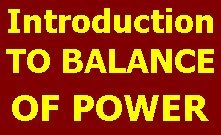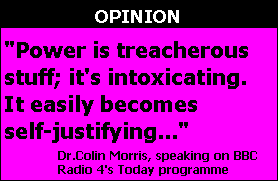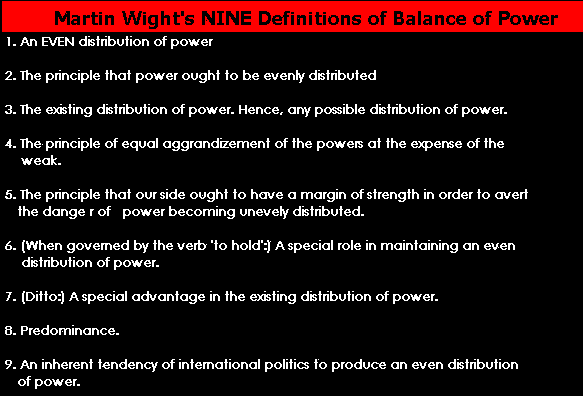



If you decided to take this course feeling that it was going to be a simple cut and dry course in diplomacy, or indeed the international system, you are gravely mistaken, my friend. After you're done with the course, you will never trust the word again. In fact, you will never again be able to trust what the journalists writing in, say, the Herald Tribune intimate when they use the word. What's more, Dr.Palo is going to reinforce a sentiment of insecurity towards it by encouraging you to learn the various definitions attributed to it, insisting you question the connotations of the word. You probably guessed what the word is -- balance of power.
Where does it come from?
The term balance of power actually comes from the realist school of thought, which, in International Affairs theory, maintains that man lives in a state of anarchy and that states act as rational individuals, being motivated by the need to maximize their power. Ofcourse, there is more to realism than meets the eye. However, due to time constraints, I will cut to the chase. The person who most influenced the theory of realism quite recently was, as you will probably learn, Hans Morgenthau. However, there were a couple before his time -- namely Thomas Hobbes who, in his book Leviathan, argued that man lived in a state of nature and that the world was a case of "all against all". In any case, you can learn moere about this in POL-212.

I would actually go as far as arguing that realism has a "profound" psychological effect on those who extol its virtues; they believe strongly in power, power, power, force, national interest and diplomacy. It therefore will come as no surprise when, as you read the books, you realize after several promptings by Dr.Palo that Norman Rich is using the term balance of power (a close relative of power politics, or Realpolitik to reflect what he perceives the statesmen of the time -- Napoleon III, Metternich, Palmerston -- to be behaving.
Don't stop there however, a certain Michael Sheehan has more to say...
In his opinion, there are nine definitions of this term that necessitate consideration if one is to better obtain an insight into the connotation of this very complex
politically-loaded term:

| Back to Writing Center Home Page | Back to POL-211 home page | Timeline |
Copyright © Politics 211 Website Online 1998-2001